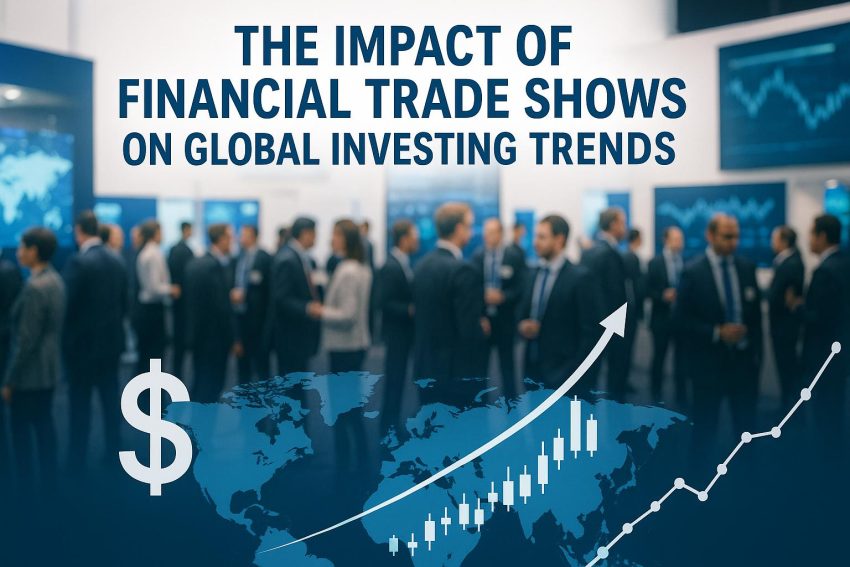The Role of Financial Trade Shows in Shaping Investing Trends
Financial trade shows have long been instrumental in shaping global investing trends. They serve as key platforms where financial professionals, institutional investors, companies, and influencers congregate to share ideas, display innovations, and unveil investment opportunities. Understanding the nuances of these events provides insight into their profound effect on the ever-evolving landscape of investment strategies and global financial markets.
Networking and Knowledge Sharing
A central function of financial trade shows is their exceptional facilitation of networking opportunities. These events present a unique environment where attendees can establish and cultivate connections with like-minded peers, industry stalwarts, and prospective partners. The collaborative atmosphere at trade shows is ripe for the exchange of ideas and the dissemination of cutting-edge market knowledge. The value gained through these interactions can significantly enhance participants’ understanding of diverse markets, varied financial instruments, and emerging industry trends.
During these events, informal discussions frequently lead to formal collaborative ventures. By engaging with different stakeholders at these trade shows, participants gain fresh perspectives and insights, which can translate into innovative strategies and approaches. These new perspectives often prompt attendees to explore uncharted territories in the financial sector or consider diversifying into emerging markets.
Showcase of Innovative Financial Products
Financial trade shows are a prime venue for companies to unveil their latest and most innovative financial products and services. This may entail the introduction of groundbreaking fintech applications, trailblazing trading software, or revolutionary data analytics tools. The exposure to these innovations at trade shows can significantly reshape investing strategies.
Through the understanding and integration of novel technologies, investors may position themselves to acquire a competitive edge in the marketplace. For instance, the emergence of algorithmic trading platforms has profoundly altered the trading methods employed by numerous institutional investors, enabling more efficient and data-driven investment decisions. As new technologies continue to emerge, their implicit promise is the potential to redefine traditional investment strategies entirely.
Insights from Keynote Speakers and Expert Panels
A hallmark of financial trade shows is the presence of keynote speakers and expert panels that delve deep into the discussion of current and forthcoming market trends. These sessions often serve as the foundation for understanding the trajectory of various economic sectors. Through analyses presented by seasoned industry leaders, attendees absorb knowledge on emerging markets, shifts in financial regulatory environments, and global economic forecasts.
This enriched knowledge base has the capacity to directly influence attendees’ investment strategies by enabling them to align their approaches with the anticipated directions of global markets. Insights gained from these discussions often prompt investors to recalibrate their portfolios to capitalize on perceived opportunities or mitigate emergent risks. Moreover, the information offered by speakers and panelists equips attendees to navigate the frequently volatile landscape of international finance with greater confidence and precision.
The Influence on Investment Decisions
Financial trade shows provide a wealth of information and insights that frequently lead to reevaluation and shifts in investment decisions among attendees. Understanding trends, such as the burgeoning demand for green technologies, gleaned from trade show discussions may drive investors to pivot toward environmentally sustainable investments in sectors like renewable energy.
Similarly, comprehending geopolitical dynamics discussed at trade shows can play a critical role in guiding investors when strategizing diversification of their international holdings. These informed shifts are designed to optimize returns while minimizing risk—a balancing act central to sound investment strategy. The understanding of complex interrelations between global events and market responses becomes an invaluable asset for investors seeking to make prudent and profitable decisions.
Fostering Global Investment Opportunities
Financial trade shows often act as a catalyst for the exploration of global investment opportunities. For many investors, these events grant access to markets they may not have previously considered. By engaging with international exhibitors and participating in discussions with various global audiences, investors are exposed to the latent potential of foreign markets. This exposure encourages the development of a more diversified investment strategy that spans continents and industries.
Interaction with global stakeholders provides a broader viewpoint and helps investors identify opportunities that may arise from regional economic growth, technological advancements, or shifting demographic trends. Inevitably, this leads to a more nuanced appreciation of global market dynamics, enhancing an investor’s capability to participate in a wider array of profitable ventures.
Conclusion
In conclusion, financial trade shows hold significant clout in influencing global investing trends. They achieve this by facilitating extensive networking, promoting innovative financial products, dispensing expert insights, and furnishing a gateway to global investment opportunities. These events serve as invaluable resources for investors aiming to refine their strategies and underpin their decisions with the latest insights and innovations in the financial world. For those keen on staying ahead in this rapidly evolving sector, attending financial trade shows can be both a strategic move and a source of competitive advantage. To explore upcoming financial trade shows and their potential impacts further, consider visiting resources like Investment Expo and Global Finance Events.
This article was last updated on: October 17, 2025
